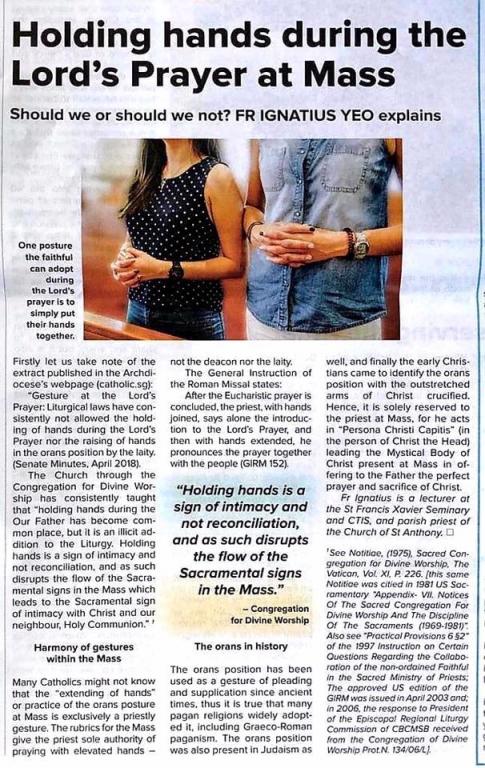There is a buzz on many Catholic blogs that the Catholic Church is about to go back to pre-Vatican II liturgical rites as a norm. People, who do not know much about the Vatican or liturgical theology seem to look back to these rites as being better than the normative liturgical celebration offered in today’s Church. And of course, they believe that the Pope has to agree with them. They suggest that Pope Benedict is slowly working to remove most or all the reforms of the liturgy; that he wants the Church to return to pre-Vatican II practices. Ultimately, they are projecting upon the Pope what they want him to do, instead of what seeing what he is actually doing. The reality is far, far different, as CNS News reports:
Pope Benedict XVI has no intention of launching a liturgical “return to the past” but would like to recover some important elements that have been lost or forgotten in recent decades, the Vatican’s liturgist said.
Why is it that people want to turn back the clock and read the Pope as if he is doing the same thing? There are many reasons for this. For the first part, they are not finding themselves spiritually fulfilled. They think the cause must lay outside of themselves, and so the liturgy becomes a scapegoat. Second, they do not understand liturgical theology, and so they confuse what the Pope is doing: he is developing the liturgy, using aspects of previous liturgical traditions to do so (as happened at the liturgical reforms after Vatican II — how many of them would suggest that the reforms after Vatican II was about ‘turning back the clock’? why, then, do they suggest it here?). Third, they seem to think that most of the problems that Catholics face today is all related to liturgy; since these problems manifested themselves in American Catholicism since the change in the liturgy, it must be the fault of the new liturgy; of course, this is just fallacious, and if they consult logical manuals, they could note which kind of fallacy it is: post hoc ergo propter hoc. Although one doesn’t need to consult logical manuals to see how faulty the logic is: if liturgy is what produces great Catholics, then those Catholics who lived before the liturgical reforms were great Catholics — and as great Catholics, their reforms must have been great (so why do they claim otherwise?). Fourth, many seem to idolize the old liturgical rites — while one can prefer it for various reasons, to think one’s preferences alone makes it the end all of liturgical tradition in the West is problematic and wrong. Fifth, they have a faulty understanding of history: they seem to think that the rites were relatively unchanged throughout Christian history until Vatican II, when the reality is that the Western liturgical tradition has been one of constant change and adaptation.
I fear many people have been given a tough sell about the old liturgical tradition. When they start going to it, and see that it doesn’t produce the kind of experience people have been led to believe it would, I wonder how many of them will have a crisis in their faith. For they could at least believe, until now, that there was a conspiracy out there trying to prevent Catholics from experiencing the fullness of the Catholic tradition, and without that experience, their spiritual life would suffer. But once they have gone and seen what all the fuss has been about, many will feel just as spiritually dry as they did before. What conspiracy theory will they create next to explain this?












